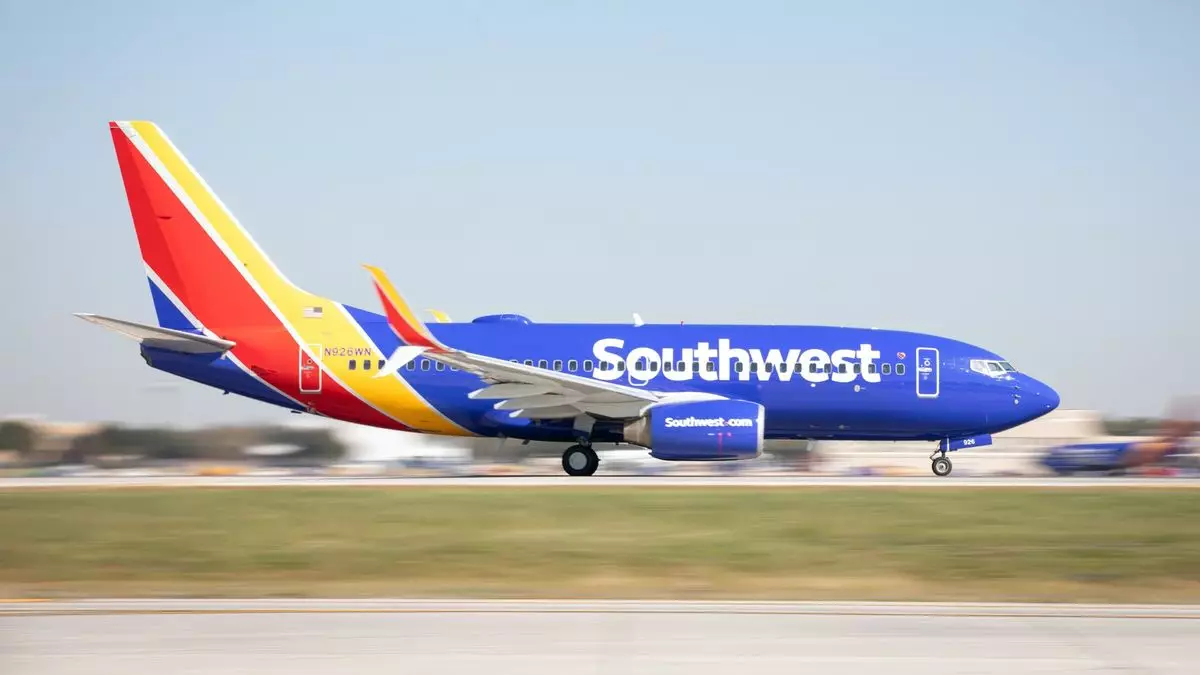The aviation industry recently faced increasing scrutiny from federal regulators, marked by lawsuits against major airlines for chronic delays. The Department of Transportation (DOT) and the Department of Justice (DOJ) have shifted their focus towards enforcing accountability among carriers, particularly targeting Southwest Airlines and Frontier Airlines for violations related to flight punctuality. This intensifying regulatory landscape signals a broader commitment to enhancing consumer protections in air travel, particularly concerning the reliability of flight schedules.
In a significant move, the DOT filed a lawsuit against Southwest Airlines in the U.S. District Court in San Francisco, claiming the airline operated flights that were persistently delayed from April to August 2022. The lawsuit highlights two specific routes: Chicago to Oakland and Baltimore to Cleveland, both of which consistently arrived more than 30 minutes late on over half of their flights—criteria that classify them as chronically delayed under DOT regulations. With the potential to incur fines exceeding $37,000 per day for each violation, the legal battle may impose severe financial repercussions on the airline.
The core of the DOT’s argument rests on its definition of what constitutes chronic delays, which it defines as a failure to meet scheduling expectations over an extended period. This classification is significant, as chronically delayed flights indicate systemic issues within an airline’s operational framework, which can mislead passengers and disrupt their travel plans. The lawsuit reflects a growing frustration with airlines that maintain unrealistic operating schedules, ultimately harming consumer confidence.
Southwest Airlines has publicly expressed disappointment regarding the lawsuit, emphasizing that its operational metrics over the past 15 years demonstrate a strong track record. The airline argues that the recent legal claims do not align with its overall performance, marking a stark contrast to previous industry standards. The airline’s response indicates a willingness to contest the DOT’s assertions in court, potentially delaying the resolution of this issue amidst changing political landscapes within federal regulatory agencies.
In contrast, Frontier Airlines opted for a more conciliatory approach with regulators, entering a consent decree after facing similar scrutiny over chronic delays. The airline agreed to pay a fine of $650,000, of which half is contingent on maintaining performance standards that prevent further violations. The consent decree reflects a strategic decision to mitigate legal risks and potential reputational damage, a pathway that aligns with the current trend in aviation of increasing compliance with federal standards.
The chronic delays associated with Frontier occurred on various routes, including a significant period between St. Thomas and Orlando, as well as other routes in subsequent months. While Frontier acknowledged some operational disruptions, it attributed many issues to unforeseen circumstances beyond its control, such as adverse weather conditions and unscheduled airport construction. This explanation highlights the complex nature of air travel operations and underscores the challenges airlines face when attempting to meet consumer expectations.
The recent legal actions against Southwest and the response from Frontier illustrate a shifting dynamic in the aviation industry, particularly concerning regulatory practices. With Secretary of Transportation Pete Buttigieg taking a firmer stance on accountability, airlines may increasingly feel the pressure to comply with new standards of operational transparency and consumer rights. The transition in leadership expected in early 2025 could further influence the enforcement landscape, particularly if a new administration shifts priorities and strategies.
These developments may also reverberate through the broader travel industry. Passengers are becoming more aware of their rights, and the heightened attention on airline compliance creates an environment where consumers are likely to demand more reliable information regarding flight operations. As these legal proceedings unfold, they will not only shape the operational practices of the airlines involved but could also set important precedents for future regulatory interventions.
The evolving relationship between airlines and regulators indicates a period of increased accountability, following years of inconsistent consumer protections in air travel. As legal battles continue, the focus on maintaining reliable flight schedules may lead to significant changes in industry practices, ultimately benefitting the traveling public.


Leave a Reply